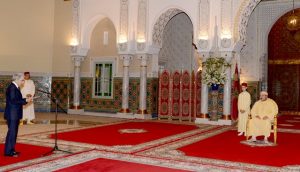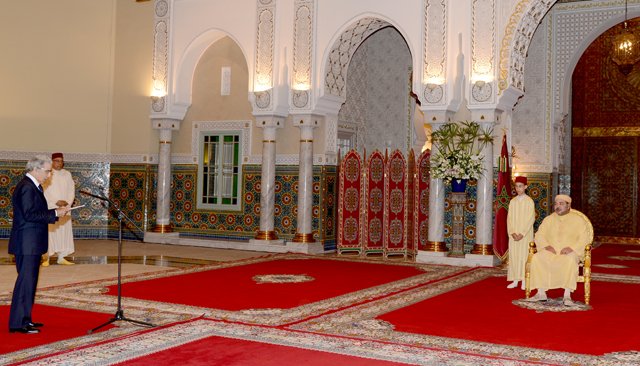 King Mohammed VI of Morocco has hailed the role played by Central Banks in mitigating the gravity of the financial and economic crisis that hit the world about a decade ago.
King Mohammed VI of Morocco has hailed the role played by Central Banks in mitigating the gravity of the financial and economic crisis that hit the world about a decade ago.
“During the past decade, as governments found themselves with very little leeway, they relied heavily on central banks,” the sovereign said in a message to the 40th Meeting of the Council of Arab central banks’ governors and of Arab monetary agencies, which kicked off Thursday morning in Rabat.
“These institutions’ actions went beyond the scope of traditional instruments of monetary policy, and new, unconventional approaches were explored,” he said adding “Central banks have indeed managed – to a certain extent – to mitigate the gravity of the crisis and its consequences.”
However, he pointed out, the excessive use of unconventional instruments has translated into new risks for markets and for financial stability in general.
The sovereign warned however, that the economic and financial crisis, which erupted in 2008, has turned out to be much deeper and is lasting much longer than previously expected.
The crisis has not remained confined to the financial sector, but has spread to the real economy as well, he said underlining that “nearly a decade later, and in spite of the significant reforms undertaken by the international community in response to the crisis, its effects are still with us.”
“In several developed countries, growth continues to be sluggish, unemployment rates – especially among young people – remain high, public debt is a cause for concern and banking systems continue to be fragile. Most major emerging economies are facing difficulties, and some of them are, in fact, facing a recession.”
As far as the Arab world is concerned, the King pointed out that in this part of the world, “on top of the effects of the global crisis, the last decade has been marked by many political and social developments. Political strife, the deterioration of the security situation and the spread of terrorism continue to destroy institutions, ruin the economy and threaten the safety of citizens in certain countries.”
King Mohammed VI also touched on the collapse of oil prices, saying “the downward trend in oil prices, since June 2014, is straining the economies of several oil-exporting countries, impacting economic and social investment programs.”
Yet, “in many countries, economies have shown some resilience vis-a-vis these developments, thanks to the bold structural reforms introduced and the diversification of the economic fabric, he noted.
After he expressed satisfaction at “the significant progress” made by Arab central banks and Arab monetary agencies to raise the funds needed to finance economic and social development in Arab countries, King Mohammed VI has, nevertheless, called on these institutions to be more vigilant in order to better manage the interplay between your institutions’ traditional mission and their new assignments as far as financial stability is concerned.
“While allowing for a certain flexibility of the financial system to ensure adequate financing for economic development and to support growth, your institutions are called upon to consolidate control and monitoring mechanisms to prevent any malfunction of the system and combat illicit financial flows, including those benefiting terrorist groups,” he went on saying.
He then expressed confidence that “as Arab monetary authorities pool efforts, they will be in a better position to make the most of our diverse yet complementary economies in order to fulfil a long-held ambition, namely to build a solid, prosperous Arab economic bloc.”
